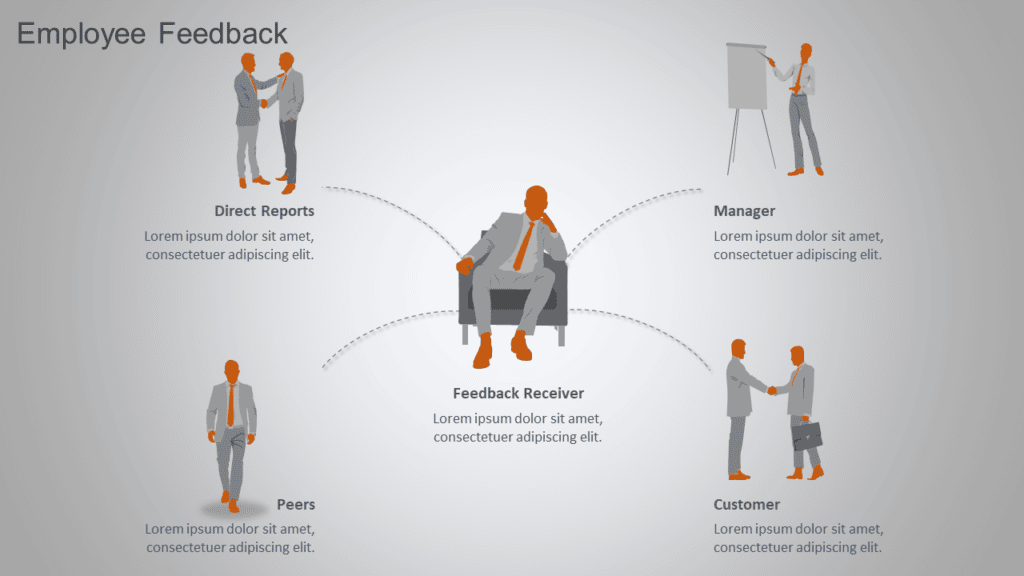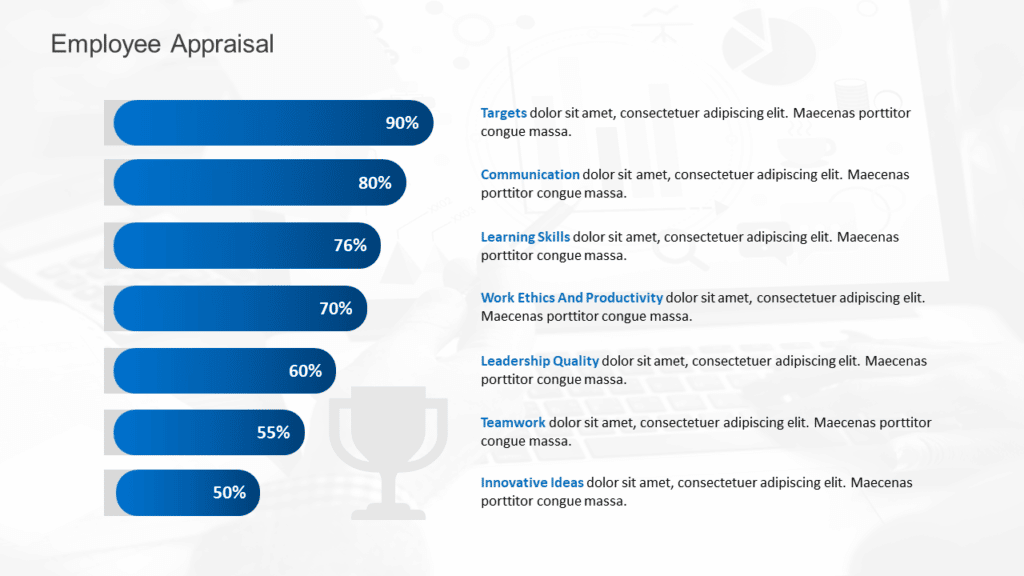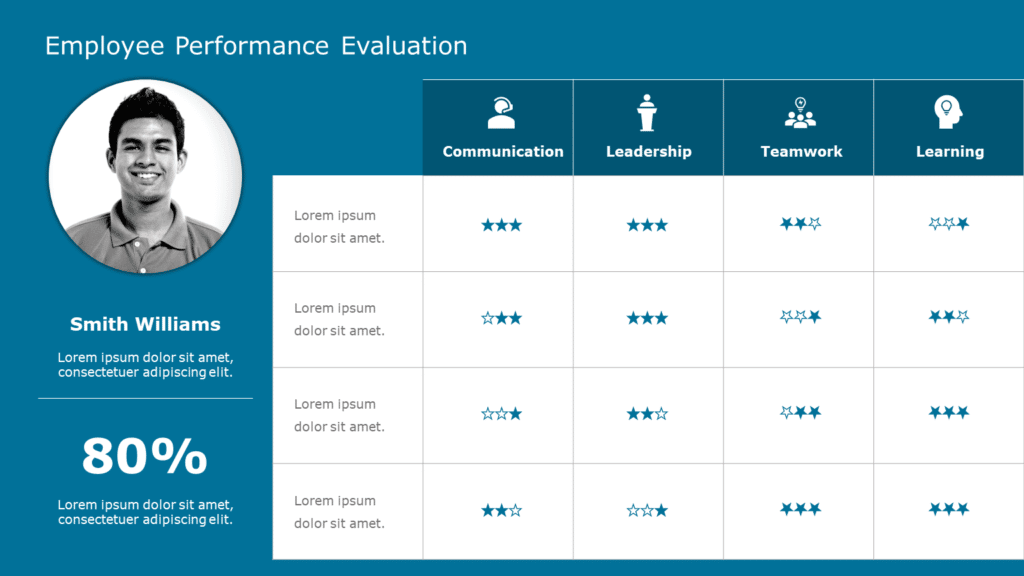This article defines what is a performance review, explains how to write and present a successful employee performance review.
If you work in management or as a supervisor, you may be required to write employee evaluations about workplace performance. A performance review can be required following a probationary term or for an annual review of an employee. To guarantee that your team members remain engaged and continue to acquire essential skills, it is critical to provide informative and constructive feedback throughout the review.
What Is A Performance Review?
A performance review is a written evaluation of an employee’s efforts on the job. In these reviews, managers must examine employees’ job productivity, vital skills, ability to meet deadlines, the potential to collaborate with a team, and attendance history.
Many businesses have their own templates for these reviews, but the majority comply with a similar framework. Managers are generally required to offer remarks or use a rating system to rate their team members’ abilities to accomplish specific tasks and master certain skills during employee evaluations.
These evaluations also allow managers to reflect on employee contributions and opportunities for improvement.
Performance reviews are generally conducted yearly as part of a year-end evaluation process in businesses of all sizes. A manager may offer an appraisal after an employee’s work anniversary in various situations. Performance reviews frequently decide whether a team member will be promoted or given a raise.
How To Write A Performance Review?
Below are the steps to write an effective employee performance review:
1. Go Through The Employee’s Job Description
Obtain a recent version of each employee’s job description and go through the requirements. You may have altered your expectations after working closely with team members depending on each person’s regular performance and skills.
Reading over each team member’s job description again will offer context for your evaluation based on their initial intended tasks.
Consider how successfully your team members fulfill their tasks and satisfy the requirements of the role when you read job descriptions.
Make a note of what each team member performs well, where they can improve, and when they outperform expectations. Use these notes to help you structure your performance review remarks.
2. Highlight Scope Of Improvement
Check last year’s performance review if you’ve worked with a team member for more than one appraisal cycle. Reread each one thoroughly to refresh your memory on how your team members have done in the past. Make a list of concerns that need to be addressed as well as areas where you proposed improvements.
Consider how your team members have grown over the course of the year. Be as precise as possible in highlighting the areas where they’ve improved. Include details in your employee performance reviews if your team members have learned new skills, completed training courses, or received certificates.
To construct a complete and detailed review that incorporates all development, try to remember the whole year of work.
3. Examine Their Highs And Lows
Next, make a list of each team member’s strengths and shortcomings based on previous evaluations and job descriptions. To lead this section of the employee performance review, consider implementing a SWOT framework (strength, weakness, opportunity, and threat).
First, examine their strengths, which include positive characteristics, significant accomplishments, and areas of expertise.
Then, develop a list of team members’ flaws, including things that impede them from reaching their goals. Third, identify ways for your team to outperform the competition. Finally, describe the dangers that might undermine their performance.
Collect facts to back up your assumptions while you do this SWOT analysis. You’ll need attendance data to illustrate attendance records and sales numbers to demonstrate employees’ ability to contribute to the organization.
Since your evaluation will influence your team members’ potential to grow in their professions, you’ll want to ensure that your performance reviews are as accurate as possible.
4. Suggest Progressive Goals
Employee performance reviews can not only impact yearly wages and promotion chances but also assist your team members in planning for the upcoming year.
Consider how you can encourage your team members to enhance their career performance and growth as you write employee evaluations.
Consider the job descriptions of your team members, previous performance, and your company’s strategic approach to deciding the goals you can set for the following year. Make recommendations for concrete goals that will benefit individual employees, your team as a whole, and your business as a unit.
Establishing SMART targets can be beneficial. Setting clear, quantifiable, actionable, relevant, and time-bound goals can help your team develop and succeed.
5. Offer Productive Feedback
Your team members will undoubtedly have strengths and weaknesses. Throughout your performance reviews, try to offer satisfactory comments.
If you bring up an area or talent that your team members haven’t yet mastered, provide a strategy that will assist them in developing. You will provide your team members concrete advice while still producing objective evaluations of their work if you provide constructive feedback.
6. Appreciate Employee Efforts
Allow your team members plenty of time to respond to their reviews and provide feedback on your comments, evaluation, and goals.
The more actively you involve them throughout the performance review, the more likely they will feel involved in setting ambitious goals and achieving success toward the prime target.
How To Present Performance Review?
Here is how you can present the performance reviews of your employees:
Evaluation for Dave Seville
Manager: Alvin Clarkson
Date: Sep. 08, 2021
Company: SlideUpLift
Targets
- You take your performance targets seriously and execute clear strategies in place to achieve them.
- You have a strong understanding of how to achieve your objectives, and you seek the resources you need to do so.
Communication
- During team meetings, you convey ideas intelligently, and you excel at implementing feedback from in-person talks.
- You always offer clear written instructions and reply to emails immediately.
Learning Skills
- You quickly learn new skills and tactics.
- You’re good at adapting to unfamiliar situations.
Work Ethics And Productivity
- You have a strong work ethic and frequently outperform predicted productivity levels.
- This year, you conquered several significant hurdles, demonstrating your resilience and dedication.
Leadership Quality
- You successfully manage projects and teams, ensuring that tasks are completed on time and within budget.
- You are an outstanding role model for your team, displaying your strong work ethic and ability to work as part of a team daily.
Teamwork
- You never hesitate to assist team members who require assistance in navigating a difficulty or resolving a problem.
- You are excellent at assigning duties to others, yet you occasionally refuse to allow other team members to assign projects to you.
Innovative Ideas
- You have a good knowledge of traditional tactics, yet you are never afraid to try new methods.
- You have a strong sense of curiosity, which allows you to think imaginatively.
*Recommendation: Throughout the year, David Seville has been an essential part of the squad. He is always motivating his employees and works hard to ensure that we fulfill deadlines. David occasionally attempts to handle too many leadership tasks. In August, I propose he attend SlideUpLift’s Leadership session.
Here are some examples of performance review templates

Employee Feedback Review Template
Source: Employee Feedback Template by SlideUpLift

Employee Appraisal Template
Source: Employee Appraisal Template by SlideUpLift

Employee Performance Evaluation Template
Source: Employee Performance Evaluation by SlideUpLift
Wrapping It Up
In recent years, there has been a lot of criticism leveled at the employee performance review. Traditional employee evaluation procedures have been giving both managers and employees difficulties. Furthermore, most employees feel that performance reviews are ineffective at motivating staff to perform well.
The yearly performance review still has a place. However, successful businesses understand that it must be part of a larger performance engagement strategy.
Managers should strive to create pleasant experiences for their employees that will encourage them and promote excellent performance.
However, creating such an experience is easier said than done.
Now you don’t have to scour the web to find out the right templates. Download our PowerPoint Templates from within PowerPoint. See how?
Looking For Powerpoint Design Agency?
Call Pursho @ 0731-6725516
Telegram Group One Must Follow :
For Startups: https://t.me/daily_business_reads
#Secrets #Great #Performance #Review #Employees #Motivated






